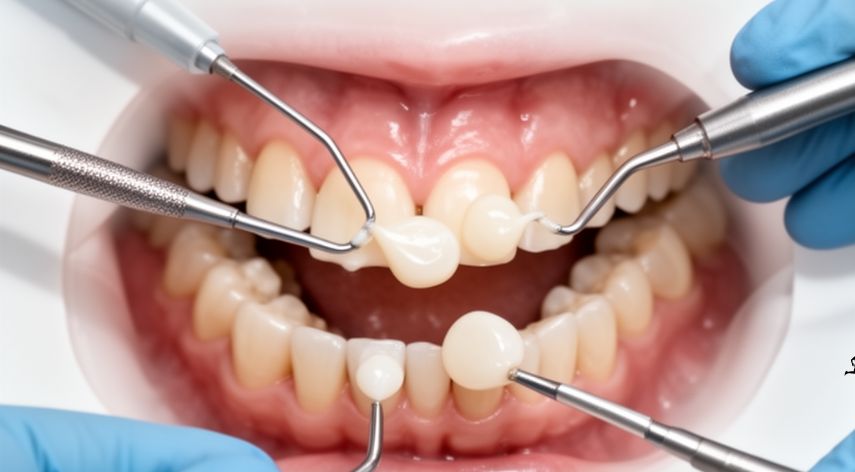Common Myths About STIs and the Truth Behind Them

Let’s face it: talking about sexually transmitted infections (STIs) isn’t always comfortable. But here’s the thing—misinformation thrives in silence, and when it comes to our health, ignorance can cost us dearly. In London alone, thousands of people are diagnosed with STIs every year, yet stigma and lack of education often lead to widespread misconceptions. These myths not only perpetuate fear but also prevent individuals from seeking help or taking preventative measures. Understanding the truth about STIs is crucial for protecting yourself and others, so let’s dive into what you need to know.
What Are STIs?
Sexually transmitted infections (STIs), sometimes called sexually transmitted diseases (STDs), are infections passed from one person to another through intimate contact. This includes vaginal, anal, and oral sex, as well as skin-to-skin contact. Some of the most common STIs in the UK include chlamydia, gonorrhoea, human papillomavirus (HPV), herpes simplex virus (HSV), and HIV. According to recent data from the NHS and UK Health Security Agency, there were over 460,000 new STI diagnoses in England in just one year. That’s a staggering number, right? And while these stats might sound alarming, they underscore why awareness and prevention are so vital.
Common STI Myths and the Facts Behind Them
Now that we’ve covered the basics, let’s tackle some popular myths floating around and set the record straight.
Myth 1: You Can Tell If Someone Has an STI by Looking
This couldn’t be further from the truth. Many STIs, such as chlamydia and HPV, don’t show any visible symptoms at all. Even conditions like herpes may lie dormant for months or even years before causing an outbreak. The bottom line? You simply can’t rely on appearances. Regular testing is your best bet to stay informed about your status—and your partner’s.
Myth 2: You Can Only Get an STI from Penetrative Sex
While penetrative sex is a common mode of transmission, it’s far from the only way STIs spread. Oral sex, genital touching, sharing sex toys, and even kissing (in rare cases) can transmit infections like oral gonorrhoea, herpes, or syphilis. So, if you’re engaging in any kind of sexual activity, it’s essential to practise safe habits across the board.
Myth 3: Condoms Protect You from All STIs
Condoms are fantastic—they reduce the risk of many STIs significantly—but they aren’t foolproof. For example, viruses like HPV and herpes can infect areas not covered by a condom. Dental dams offer additional protection during oral sex, but again, no method is 100% effective. Combining barrier methods with regular testing is the smartest approach.
Myth 4: STIs Only Affect Promiscuous People
Here’s where stigma really rears its ugly head. Anyone who is sexually active—even those in monogamous relationships—can contract an STI. It’s not about morality or behaviour; it’s about biology. Whether you’ve had one partner or ten, getting tested should be part of your routine healthcare.
Myth 5: You Can’t Get an STI from Oral Sex or Kissing
Think oral sex is “safe”? Think again. Infections like oral gonorrhoea, herpes, and certain strains of HPV can be transmitted this way. Similarly, cold sores caused by HSV-1 can pass between partners through kissing. Don’t assume low-risk activities mean zero risk—always use protection and get checked regularly.
Myth 6: Once Treated, You Can’t Get the Same STI Again
Unfortunately, treating an STI doesn’t grant immunity against future infections. Take chlamydia, for instance—you could catch it multiple times if exposed repeatedly. Reinfection underscores the importance of ongoing safe practices and regular screening, especially if you have multiple partners.
Myth 7: If You Don’t Have Symptoms, You’re STI-Free
Silent infections are more common than you’d think. Chlamydia, for example, often shows no symptoms but can cause serious reproductive issues if left untreated. Likewise, HPV rarely presents noticeable signs yet remains a leading cause of cervical cancer. Just because you feel fine doesn’t mean you’re in the clear.
The Importance of Regular STI Testing in the UK
So, how do you take charge of your sexual health? By getting tested regularly. In the UK, services like NHS sexual health clinics, private clinics, and home testing kits make it easier than ever to screen for STIs discreetly and affordably. How often you should test depends on your lifestyle—if you’re single and dating casually, experts recommend testing every three to six months. For those in long-term relationships, annual checks are usually sufficient unless symptoms arise.
Early detection saves lives. Not only does it allow for prompt treatment, but it also helps prevent complications like infertility, chronic pain, or spreading infections to others. Plus, knowing your status gives you peace of mind, which is priceless.
How to Protect Yourself from STIs
Prevention is always better than cure, so here are some practical tips to keep yourself safe:
- Use Protection: Always use condoms or dental dams correctly during sex.
- Communicate Openly: Talk to your partners about sexual histories and testing. Transparency builds trust—and reduces risks.
- Get Vaccinated: The HPV vaccine protects against several high-risk strains linked to cancers, while the hepatitis B vaccine guards against liver damage.
- Stay Vigilant: Make regular screenings a non-negotiable part of your health routine.
- Seek Treatment Promptly: If diagnosed with an STI, follow your doctor’s advice closely and inform recent partners so they can get tested too.
When to See a Sexual Health Professional
Certain symptoms warrant immediate attention, including unusual discharge, painful urination, sores, rashes, or itching in the genital area. However, remember that asymptomatic infections are equally concerning, so don’t wait for red flags to appear. Confidentiality is guaranteed at UK sexual health services, ensuring your privacy is respected throughout the process. No judgement, just care—that’s their motto.
Conclusion
Knowledge truly is power when it comes to STIs. By debunking myths and replacing them with facts, we can break down barriers of shame and misinformation. Remember, having an STI doesn’t define you—it’s simply a medical condition that requires attention, much like a cold or broken bone. Taking proactive steps toward your sexual health benefits you and the community at large.
So, here’s my challenge to you: book a confidential STI test at your nearest clinic today and take control of your health. Your body will thank you, and so will your future self.
Lareal Young is a legal professional committed to making the law more accessible to the public. With deep knowledge of legislation and legal systems, she provides clear, insightful commentary on legal developments and public rights, helping individuals understand and navigate the complexities of everyday legal matters.
Recommended For You
In the heart of the City of London, maintaining excellent oral health is essential for busy professionals and residents alike.
If you’re searching for “composite bonding near me” in London, it’s important to know what truly sets a clinic apart.
Cancer affecting the urinary tract and male reproductive organs requires specialized care. This is where uro-oncology plays a crucial role.
Browse by Category
- Travel
- Technology & Gadgets
- Sports & Games
- Software
- Shopping
- Reviews
- Real Estate
- Numerology
- News
- Make Money
- Lifestyle
- Law
- Home Improvement
- Health
- Gardening
- Games
- Finance
- Entertainment
- Education
- Digital Marketing
- Diet and Fitness
- Dating
- Construction
- Celebrity
- Career and Jobs
- Business
- blog
- Angel Number



